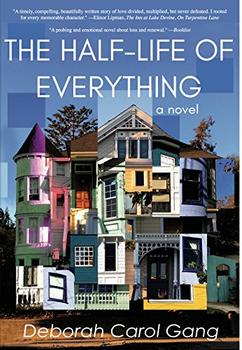Summary | Excerpt | Reading Guide | Reviews | Beyond the book | Read-Alikes | Genres & Themes | Author Bio

When I recommend a book that I enjoyed, one of the first questions people ask is: "What is it about?" I feel like I have about thirty seconds to make my case before they decide if they want to read it or not. Now if I were to tell you that I'd just read a very quiet book about the life of an ordinary woman where nothing very dramatic happens, I bet most of you would shake your head and skip to the next review. But wait. I know it might be hard to convince you that Alice McDermott's Someone is a worthwhile and rewarding read, but I'm going to try. Because it is.
Marie narrates her own story in first person, starting with her childhood and taking the reader through her unexceptional life, rendering the intricately observed details, the tasks and daily rituals—bathing, shopping at the deli, learning to bake bread, sharing family meals—with a rare, crystalline precision and in doing so, lifting them up and beyond the ordinary drudge. It is through this rendering that we come to see the ordinary moments in our own lives as vivid and precious.
The story starts in Brooklyn in the 1930s. Marie lives with her lower middle class Irish-American Catholic family—her mother, father and older brother Gabe, a candidate for the priesthood. Here, she describes herself: "At seven, I was a shy child, and comical looking, with a round flat face and black slits for eyes, thick glasses, black bangs, a straight and serious mouth—a little girl cartoon."
The story toggles back and forth in time, beginning with childhood then venturing ahead to future moments that tie in. The moments that McDermott chooses to represent Marie's life are fascinating. Connected to an event before or after, these vignettes keep the story from feeling episodic (as linear life stories can feel) so we come to see the patterns of sorrow and compassion, the redemption even in the brokenness and fragility of life. For instance, we see Marie married with adult children well before she has shown us the heartbreak of her first lost love. The details of her life continue to be shuffled as we go from her wedding night to the nursing home where she lives as a very old woman; and likewise from the birth of her first child, to when the doctor tells her she can never have more children. But by then, we already know she has had three more. Later, looking back at the time soon after the birth of their first child, we hear Marie tell her husband that the doctor's words had not made her afraid: "I had conceived our first child without any notion of the suffering involved. Now that I knew, desire—which was still there, of course—seemed small enough incentive to conceive again. It was courage now that was delightful to me."
Reading Someone, I was often reminded of the way poets make the ordinary, extraordinary through pristine observation. I'm not talking about the kind of poems that speak in abstractions or obscurities, but those that speak like prayers of gratitude. Because at times the quiet and observant prose comes across as a sort of prayer, giving thanks for the everyday blessings of an unremarkable life.
Sight is a major theme woven throughout – from Marie's thick glasses, to a later detached retina and the resulting experience with total blindness in the hospital room, to cataract surgery as an elderly woman. Marie is nearly blind, yet sees so much—perhaps by paying close attention to details. Her understanding of things goes in and out of focus. As in real life, many insights are withheld until late in the story. For instance, as a teen, we see her stubborn refusal to learn how to cook, how to make bread, but it isn't until the end that we learn the poignancy of the reason.
I have to admit that there were times when Someone read as a bit of a cautionary tale—"do not live your life in such a passive, apathetic way." At the same time, it is thoroughly validating and lovely to know that upon examination, even an unexceptional life, no matter how ordinary, is of value. The title itself says so much—it reminds us that everyone is someone. We see that Marie loves her ordinary life as she says: "It was a homely room...Were I to dream again, I would dream myself into this room, at this hour. I would take the fading cushion beside me."
![]() This review was originally published in The BookBrowse Review in November 2013, and has been updated for the
October 2014 edition.
Click here to go to this issue.
This review was originally published in The BookBrowse Review in November 2013, and has been updated for the
October 2014 edition.
Click here to go to this issue.

If you liked Someone, try these:

by Deborah Carol Gang
Published 2018
David and Kate are happily married fifty-somethings when she's diagnosed with early Alzheimer's. He has never been unfaithful, but after several years of losing Kate more each day, he wonders: What is a married widower supposed to do? Two strong-willed women intervene and everyone finds themselves making unexpected choices.

by Marilynne Robinson
Published 2015
Marilynne Robinson, one of the greatest novelists of our time, returns to the town of Gilead in an unforgettable story of a girlhood lived on the fringes of society in fear, awe, and wonder.
Every good journalist has a novel in him - which is an excellent place for it.
Click Here to find out who said this, as well as discovering other famous literary quotes!
Your guide toexceptional books
BookBrowse seeks out and recommends the best in contemporary fiction and nonfiction—books that not only engage and entertain but also deepen our understanding of ourselves and the world around us.